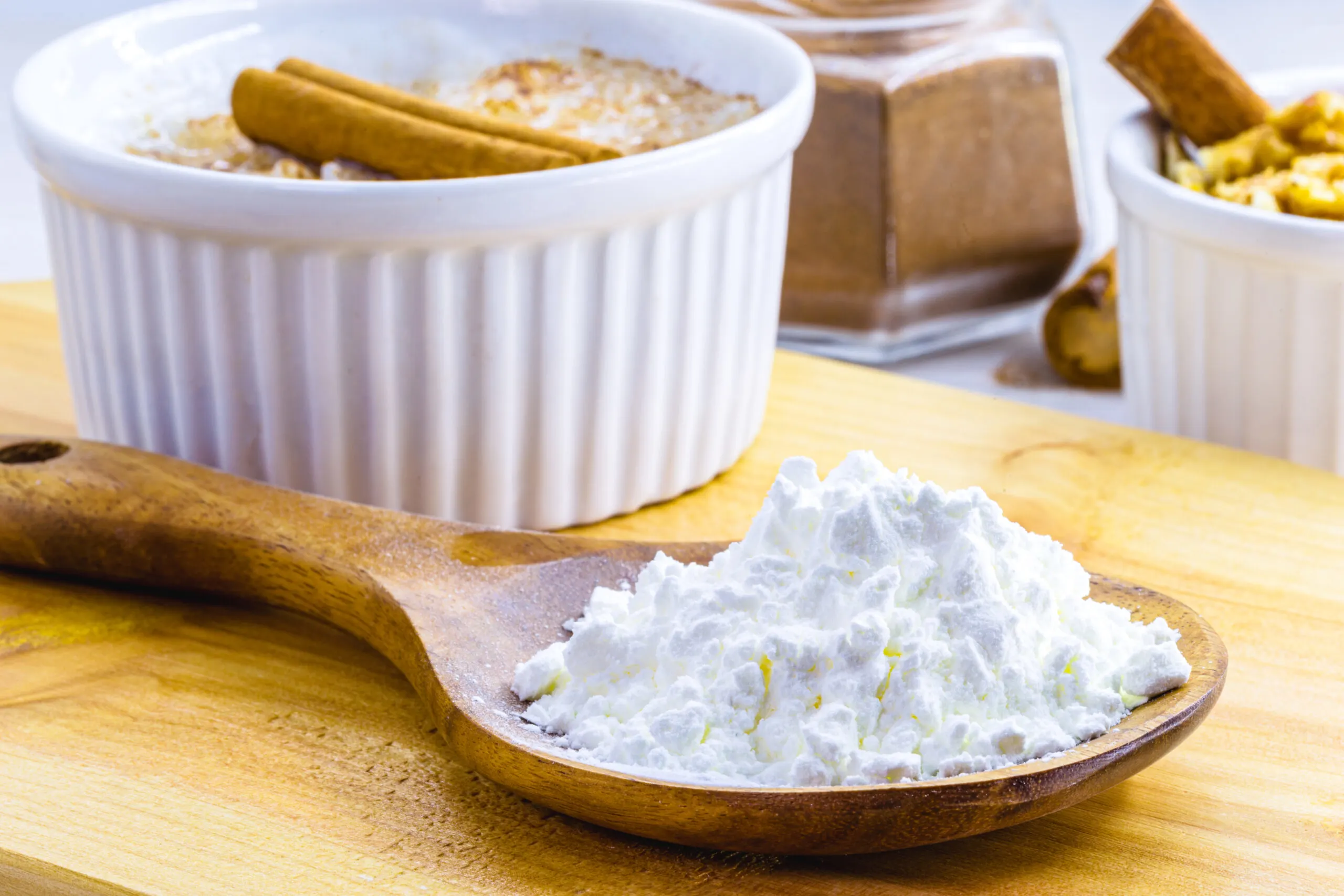Is xanthan gum a good cornstarch substitute?
When making a stew, soup, or sauce, you may want it to be thicker, which necessitates the use of a thickening agent. When baking or… Read More »Is xanthan gum a good cornstarch substitute?
Cornstarch is a popular thickening agent. Used in soups, sauces, and in deep-fried and baked goods, this tasteless powder is a pantry staple for most cooking enthusiasts.

Cornstarch is what it sounds like: starch from corn. It’s made by grounding corn’s nutritive tissue called the endosperm into a fine white powder. The endosperm is in the center of a corn kernel.
Cornstarch was originally developed in 1840 to starch laundry. A New Jersey factory worker named Thomas Kingsford is credited with the invention.
Later, people found cornstarch helpful for other purposes, in and out of the kitchen:
Cornstarch has very little taste, similar to flour. It mixes with liquids easier than flour and produces a smooth and silky texture. When heated in liquids, cornstarch acts as a thickening agent.
Cornstarch is primarily carbohydrate. Per 100 grams, cornstarch contains 91 grams of carbohydrates, only 0.3 grams of protein, and 9 grams of sodium. That equates to nearly 400 calories.
There is a bit of iron in cornstarch, but otherwise it has minimal nutritional value.
Cornstarch is made by grounding the endosperm (inner starchy part) of the corn. Corn flour is made by grounding the whole corn kernel. This makes cornflour more nutritious because it houses more nutrients than cornstarch.
Cornstarch isn’t unhealthy especially when it is consumed in smaller amounts. Many processed foods unfortunately contain a higher amount of cornstarch.
You should avoid cornstarch if you are on a low-carb or keto diet since cornstarch is primarily carbohydrate.
Cornstarch can lose its thickening power if it’s not stored properly. Keep your cornstarch sealed in an airtight container at room temperature — that way, it will last for a long time.
When making a stew, soup, or sauce, you may want it to be thicker, which necessitates the use of a thickening agent. When baking or… Read More »Is xanthan gum a good cornstarch substitute?
Cornstarch and cornflour are made from corn, although they have different nutritional profiles, tastes, and applications. Maize flour is a finely powdered powder made from… Read More »How to substitute corn flour for cornstarch?
Cornstarch is a common ingredient in cooking and baking.It’s a pure starch powder extracted from corn kernels by removing the outer bran and germ and… Read More »What is a good substitute for cornstarch in baking?
Cornstarch is a common ingredient in cookery. It’s a pure starch powder made from maize kernels after the outer bran and germ have been removed,… Read More »Substitute for cornstarch in cookies
From thickening soups and sauces to making fluffy omelets and crispy waffles, cornstarch is a versatile ingredient that should be a staple in every kitchen.… Read More »Substitute cornstarch for baking powder
Cornstarch is one of the culinary ingredients that I have come across that is extremely versatile; having it in your kitchen would be beneficial in… Read More »Keto cornstarch substitute for frying
We all love corn. It’s one of the most versatile foods on the planet, and its versatility can make it very appealing to cooks. Although… Read More »How does cornstarch taste like?
Starches thicken sauces, give our most excellent pie fillings character, and turn soups and stews from watery to rich and creamy. Only one issue: When… Read More »Substitute arrowroot for corn-starch
Let’s assume you’re standing in your kitchen, perhaps a bit sweaty and tired but surrounded by the delicious aroma of the sauce you’re making for… Read More »Substitute for cornstarch in sauce
Pies are a casing of pastry flour with all kinds of sweet or savory fillings. Corn-starch is a thickener used to keep the Pie from… Read More »Substitute for cornstarch in pie
You may know there are various substitutes for cornstarch, but which is the best cornstarch substitute for frying? You don’t want to forgo that crispy,… Read More »Cornstarch substitute for frying? Here are 5 options
Everyone loves how cornstarch helps us create a thick creamy soup or coat meats and vegetables for deep frying. But ingredients like cornstarch and cornflour… Read More »Keto substitute for cornstarch
Cornstarch is a pantry staple with many uses in the kitchen. It’s also one of those ingredients you might assume you have on hand —… Read More »The 5 best substitutes for cornstarch